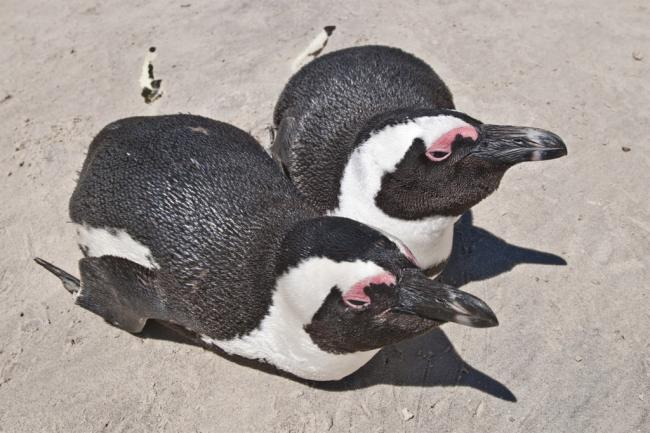
UN-backed conference adopts measures to tackle threats to migratory waterbirds
The 6th Meeting of the Parties to the Agreement on the Conservation of African-Eurasian Migratory Waterbirds, which is administered by the UN Environment Programed (UNEP) and which wrapped up this past weekend in Bonn, addressed the challenges of migratory waterbirds such as storks, ducks, geese and the African Penguin, which are especially vulnerable along their often long migration routes across Africa and Eurasia.
“[The Agreement] forms a bridge between Eurasia and Africa, which is indispensable for the conservation of transcontinental migrants,” Jacques Trouvilliez, Executive Secretary of Agreement, said in a news release, adding that “actions are based not only on the best scientific expertise but also on reconciling human well-being with biodiversity conservation.”
For the first time in Agreement's history, it has adopted an action plan for nine species of seabirds, involving Angola, Namibia and South Africa.
Action plans for six priority species have also been adopted. The endangered Ugandan Grey Crowned Crane, among which, has suffered a 4/5 decline in the past half century.
As a result, countries have agreed to launch and complement a network of marine protected areas, pledged to support the outcomes of the UN Environment Assembly (UNEA1) on marine debris, and of the UN Food and Agricultural Organization (FAO) to comply with regulations to protect seabirds.
Six priority species, facing some common threats caused by illegal hunting and wildlife trade, habitat loss, ocean pollution, with half of them only occur in Africa, have also been highlighted in the conference and reflected in the target plans.
One action plan specifically aims to reverse these endangered populations decline by reducing the mortality rate of adult birds and increasing breeding success.
Applauding the resolutions, one African delegate said that these actions “link to improving the livelihoods of people,” with another African expert stressing that “seabirds are sentinels of ocean health and some are signalling distress.”
The Bonn meeting further discussed the impact of renewable energy on waterbirds and noted its harm to migratory waterbirds, if not properly installed. Windfarms and hydropower plants located along major migration routes, for example, can have lethal effects.
Bycatch and depletion of prey through fisheries, invasive land species, ingestion of microplastics, climate change, among others, are main threats to the seabirds, according to the news release.
The 6th Session of the Meeting of the Parties to the Agreement on the Conservation of African-Eurasian Migratory Waterbirds (AEWA MOP6) was held from 9 to 14 November 2015 in Bonn, Germany.
Over 200 delegates from party states, observer states, intergovernmental and nongovernmental organizations attended the conference.
As the only inter-governmental treaty administered by UNEP, AEWA is dedicated to the conservation and sustainable use of migratory waterbirds and their habitats throughout their range. 2015 also marks its 20th Anniversary.
Photo: UNEP GRID Arendal/Peter Prokosch/www.justearthnews.com
Support Our Journalism
We cannot do without you.. your contribution supports unbiased journalism
IBNS is not driven by any ism- not wokeism, not racism, not skewed secularism, not hyper right-wing or left liberal ideals, nor by any hardline religious beliefs or hyper nationalism. We want to serve you good old objective news, as they are. We do not judge or preach. We let people decide for themselves. We only try to present factual and well-sourced news.







